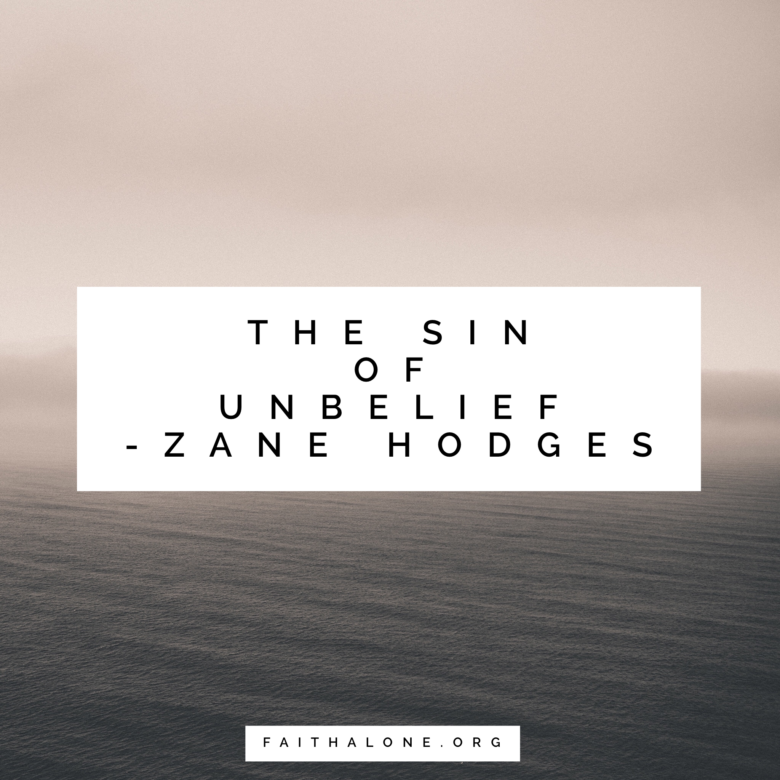by Zane Hodges, originally published in the November/December 2007 issue of Grace in Focus
Sometimes grace people do not think as clearly as they need to on important issues. The sin of unbelief—not believing in the Lord Jesus Christ for eternal life—is one of these issues. Let me address some questions that have, or might, arise on this subject.
Question: Did Christ die for the sin of unbelief?
Answer: Of course. He died for all the sins of all mankind (1 John 2:2).Question: Then why does God send people to hell for not believing?
Answer: He doesn’t. The Bible nowhere says that.Question: Then what does He send them to hell for?
Answer: For not having their names in the Book of Life (Rev. 20:15).Question: But isn’t that because they didn’t believe?
Answer: Yes. But it’s still not the reason they are condemned to hell.Question: Isn’t that double-talk?
Answer: Not at all. A cause and a reason are not the same thing. Unbelief is the cause for the unsaved not having eternal life. Not having eternal life is the reason they are condemned to hell.
Let’s say a man on parole is required to be in his home by 11 PM. One night he is visiting his aunt and stays there until 12 PM. His violation is discovered and he is sent back to prison. Why? Was it because he had a long visit with his aunt? No, not really. It was because he fell below the required standard for his parole. The visit with the aunt was the effective cause of the violation, but the violation of parole itself was the legal reason he is returned to prison.
When this man returns to prison the legal decision on which this fact is based will not require the state to make reference to his visit to his aunt! He simply violated parole.
At the Great White Throne Judgment (Rev 20:11-15) people are temporarily released (paroled!) from hell (Hades) and the issue of their permanent eternal abode becomes a legal matter in the presence of their Judge (Jesus Christ: John 5:22). They are first judged according to their works to see if these works justify their permanent release from eternal judgment (Rev 20:13). As we know, there will be no justification based on works (Rom 3:20). Next, search is made in the Book of Life to see if they qualify for release because they have eternal life. They do not and are therefore placed in an eternal abode (the Lake of Fire) in separation from their Judge forever.
Although the outcome of this whole process is a foregone conclusion, the justice of God requires the process to take place. Even in our own society, a man caught red-handed in the act of murder (or some other crime) must have his day in court. Every unsaved person will have his or her day in God’s court.
In this whole process, the Scripture text makes no reference at all to sin as such, but instead refers first to works (Rev 20:13), and next to life (Rev 20:15). Sin, as such, has no place as a determining factor at this judgment.
Why is that? It is because the Judge (Jesus Christ) is also the Lamb of God who has taken away the sin of the world (John 1:29). The Judge will not bring up an issue that He Himself has dealt with on the cross. This Judge will condemn no human being whatsoever for any sin whatsoever.
He has taken all that away.

